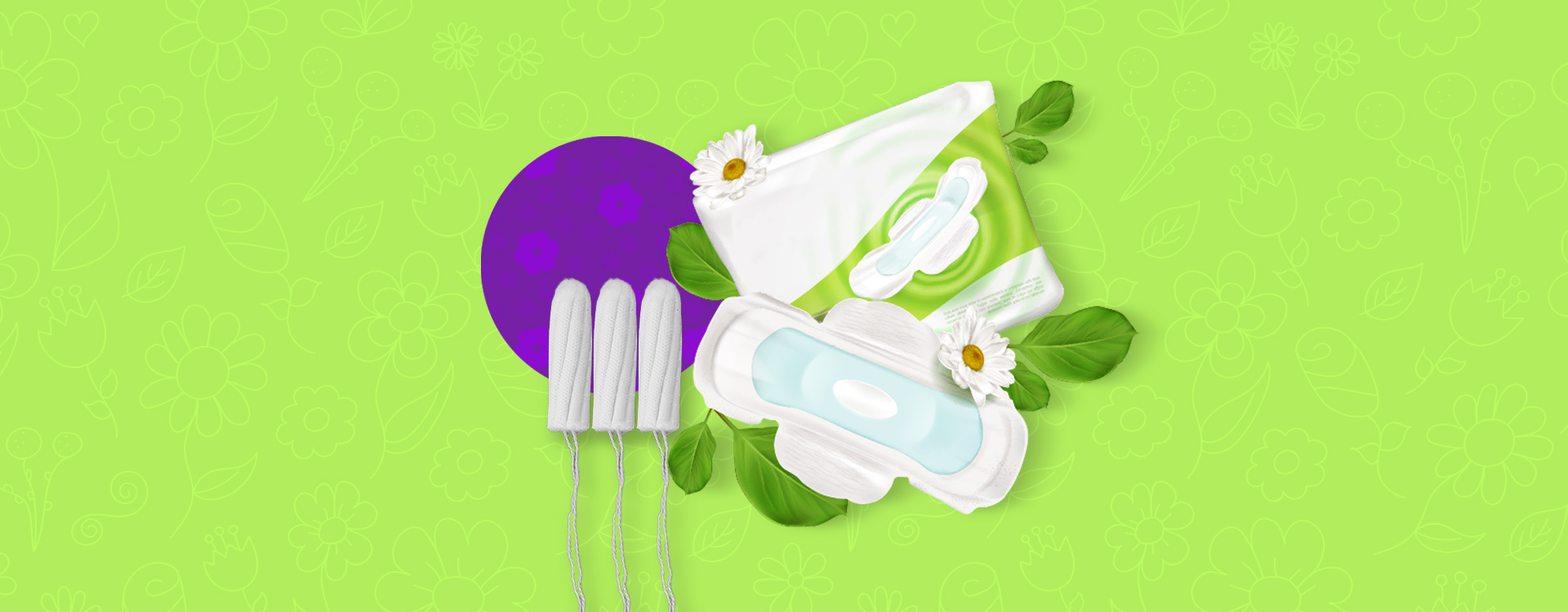Menstrual waste is aggravating India’s environmental pollution. Before you begin to ponder upon the premise ‘how’, allow us to present you with some glaring facts. Following statistics are from the report titled ‘Menstrual Products and their Disposal’ released by the environmental group Toxics Link.
- Disposable sanitary napkins are manufactured with 90 percent plastic.
- About 12.3 billion or 113,000 tonnes of used sanitary pads are dumped in landfills in India every year, adding to the 3.3 million tonnes of plastic waste already present in the country.
- A single commercial non-organic sanitary pad will either take 250-800 years to decompose or may never decompose at all.
- The amount of plastic a pad consists of is equivalent to 4 plastic bags.
- Currently, India lacks a proper recycling facility for this non-biodegradable menstrual waste. The menstrual waste dumped in landfills can stay undecayed for 100 years contributing to micro-plastic pollution and if burnt in incinerators can release toxic components like dioxins and furans.
The statistics and facts presented displayed the sorry state of curbing plastic waste and menstrual waste in India that bothered Deepanjali Kanoria to launch her eco-friendly range of feminine hygiene products under the name ‘Heyday’.
What is Heyday?
Heyday is a Gurugram-based feminine hygiene startup founded in 2017 whose product portfolio comprises organic and biodegradable sanitary pads, panty liners, menstrual cups and baby diapers. Heyday currently has 24 SKUs (Stock Keeping Units) in total with prices ranging from Rs99 to Rs 399. Its products are available on e-commerce platforms like Amazon, Flipkart and Nykaa, apart from its website.
‘‘
According to a report titled Menstrual Products and their Disposal’ released by the environmental group Toxics Link around 12.3 billion or 113,000 tonnes of used sanitary pads are dumped in landfills in India every year.
How Did Heyday start?
Deepanjali Kanoria left her comfortable job as a financial analyst in Ernst & Young with a dream in her eyes to step into the journey of entrepreneurship to disrupt the feminine hygiene sector by introducing eco-friendly products.
The unawareness regarding the plastic component in sanitary napkins, diapers and tampons causing environmental harm has helped her to envision Heyday – an eco-friendly brand – in the feminine hygiene space in 2017. In March 2021, she was recognised as a Forbes 30 Under 30 in India and Asia.
How Heyday is planning to revolutionise the feminine Hygiene market?
Unlike feminine hygiene giants that use harmful synthetic raw materials, Heyday’s products are manufactured using plant-based fibres of corn and bamboo that are free from chemicals and plastics, whose usage gives a rash-free and comfortable experience. The products are biodegradable within two years of disposal.
What is in it for startups in the feminine hygiene space?
According to Research and Markets, the Feminine hygiene product market in India was valued at 32.66 billion in 2020 and is expected to grow at a compound annual growth rate of 16.87 percent during the 2021 – 2025 period. The tailwinds to this growth can be owed to improved awareness regarding feminine hygiene and the benefits of using personal care hygiene products.
Here are some of the factors about how will the space look for the new entrants planning to foray in the organic feminine hygiene market:
The dominance of FMCG giants
The market looks promising for feminine hygiene space in India. However, 90 percent of the market is dominated by P&G and Johnson & Johnson due to their early presence and penetrative distribution model that makes its products available in all the brick-and-mortar stores.
The remaining 10 percent comprises organic feminine hygiene space where the market share is distributed among brands -NUA, Carmesi, and Pee Safe other than Heyday. These new feminine hygiene brands majorly operate online or in a D2C channel, whose awareness is limited to women belonging to tier-1 cities.
Price
Price will play a pivotal role in the acceptance of organic sanitary napkins. The price of Whispers sanitary napkins that start from Rs 40-50 gives 15-20 pads in total whereas one pack of Heyday’s sanitary napkins costing between Rs 199 -299 gives 14 pads in total. The price aspect will influence the buying decision coupled with the benefits of the product being rash-free, chemical-free, and environment-friendly.
New Products are Nascent
New products launched by these brands like tampons, panty liners and menstrual cups are in their infancy in India for their usage.




